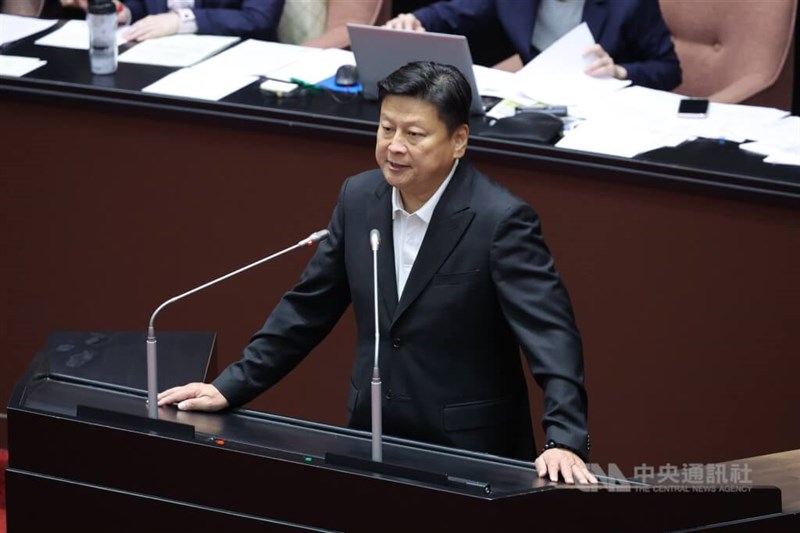Bill easing Chinese spouses' eligibility to hold office proceeds to committee

Taipei, Nov. 28 (CNA) A proposed amendment by the opposition Kuomintang (KMT) that would allow China-born spouses of Taiwanese citizens to run for and hold public office without first renouncing their Chinese citizenship was referred to a legislative committee for review on Friday.
The amendment bill, introduced by KMT lawmakers including Fu Kun-chi (傅崐萁), follows several recent cases in which local officials born in China and married to Taiwanese nationals were removed from office after failing to provide proof that they had relinquished their People's Republic of China (PRC) nationality.
One of the affected spouses had lived in Taiwan for nearly 30 years.
The draft amendment to the Nationality Act stipulates that the political rights of residents from mainland China should be governed by the Act Governing Relations between the People of the Taiwan Area and the Mainland Area.
Under this framework, Chinese spouses who have household registration in Taiwan would no longer be subject to Article 20 of the Nationality Act.
Article 20 requires Republic of China (ROC) nationals who hold a foreign nationality to renounce it within one year of assuming public positions, with failure to comply resulting in removal from office.
According to the bill's explanatory note, the Nationality Act currently governs only the acquisition, loss, restoration, and revocation of ROC nationality, and does not clearly define its applicability to mainland Chinese residents.
In practice, this has created confusion between Article 20's renunciation requirement and the provisions of the cross-strait relations act, undermining legal clarity and predictability, according to the bill's authors.
It is believed to be impossible for mainland-born spouses to provide proof they had renounced their mainland citizenship because Beijing does not issue the necessary documents since it considers Taiwan as a part of China and its residents as its own citizens.
Under PRC law, Chinese nationals who have settled abroad and been naturalized as a foreign national "shall" automatically lose Chinese nationality.
But China does not recognize Taiwan as a sovereign state, making it hard for Chinese spouses living in Taiwan who have obtained Taiwanese ID cards to qualify as a "foreign national" in Beijing's eyes.
The KMT argues that Chinese spouses' political rights should be evaluated under the cross-strait relations act, which already provides a distinct framework for household registration, employment, and eligibility to stand for election -- and that this special law should take precedence to avoid misapplication of the Nationality Act.
The amendment was placed on Friday's plenary agenda by the Legislature's Procedure Committee. As no objections were raised during the reading of reports, the bill was referred to committee for further deliberation.
Speaking in Tainan, President Lai Ching-te (賴清德), who also chairs the ruling Democratic Progressive Party (DPP), urged lawmakers not to advance the proposal, saying there is no need to amend the Nationality Act "in a way that removes the expectation of single allegiance for immigrants from China."
Lai said such a change would only heighten public concerns about new residents from the mainland and would do nothing to promote social harmony. He called on proponents of the amendment to "think carefully" and prioritize safeguarding national security and unity.
DPP Legislator Wu Szu-yao (吳思瑤) likewise said the DPP's legislative caucus would strongly oppose the measure and urged the opposition to "think carefully before acting."
-
Business
Taiwan shares open lower
03/02/2026 09:11 AM -
Sports
Taiwan's hopes of advancing in FIBA World Cup slim after losing to China
03/01/2026 08:17 PM -
Culture
Paper Windmill's Rain Horse to show at Chiayi Taiwan Lantern Festival
03/01/2026 07:16 PM -
Sports
Taiwan's Lin Yun-ju advances to WTT men's singles final in Singapore
03/01/2026 06:45 PM -
Society
Taiwanese in LA mark 228 anniversary with children's event
03/01/2026 05:33 PM